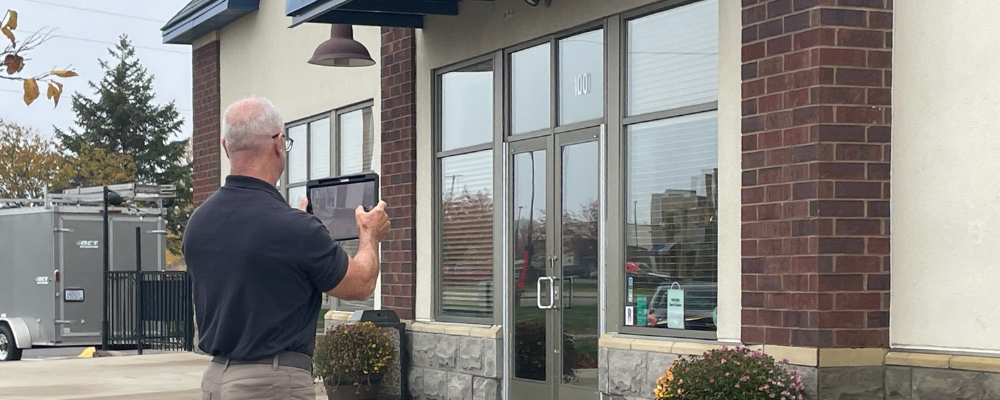What is a typical “day in the life” of an ICC Loss Control Specialist? The short answer is there is no typical day. Conducting hundreds of walkthroughs in the course of a year, the Loss Control Specialist encounters different scenarios daily. Every day brings a new location, a new policyholder, and potentially a new set of problems.
Each of the Loss Control Specialists at ICC have an assigned territory which can cover several states. They must manage their own territory and plan out their time according to the inspections that are assigned to them. From time-to-time, they may even assist an inspector in another territory. In an average week, a Loss Control Specialist can travel throughout one or more states, driving anywhere from 500 to 1000 miles or more!
Additionally, ICC writes policies in Colorado, Arizona, and Utah, but does not currently have any Loss Control staff living there. Loss Control Specialists each take their turn flying or driving out west to complete a larger than average number of inspections in a given timeframe.
The backgrounds of Loss Control Specialists are widely varied. Some have previous industry experience in Loss Control or Claims. Some come from a firefighting or construction background. All must be detail oriented. Each inspection needs to be given the same high level of attention for the benefit of the policyholder and ICC.
Responsibilities of a Loss Control Specialist
- Contact the insured or prospective insured
- Identify potential loss-producing conditions while conducting onsite visits
- Investigate the causes of the loss and develop corrective action to prevent recurrence
- Make recommendations to reduce the probability and minimize the seriousness of loss; outline the benefits of correcting deficiencies
- Upload reports, photos, diagrams, and make recommendations
Loss Control Specialists are the eyes and ears of the insurance company. Once an inspection is assigned to them, they will contact the insured to schedule a time to visit their location. The required information will be gathered through a variety of means.
An interview with the insured’s designated contact will allow them to obtain or confirm information that is used in determining appropriate premium. They will also be physically inspecting the location and taking measurements and numerous photographs.
What exactly are they looking for during an inspection?
In general, they are looking for loss potential, existing controls, and to reduce or eliminate undesirable or substandard conditions. Here are a few examples of questions they consider as they walk through the insured’s location.
- Does the insured have the correct types and number of fire extinguishers?
- Are the fire extinguishers, fire suppression systems, and hood systems in commercial kitchens being kept up to required inspection intervals as set forth by the NFPA (National Fire Protection Association)?
- Are the exits free and clear of any obstructions to allow for use in case of emergency?
- Are there any electrical hazards, such as frayed wiring, overloaded power strips, and improper extension cord use?
- Does the location have any trip hazards, such as uneven flooring surfaces, worn carpeting and floor mats inside, or parking lot and sidewalk surfaces outside?
- Are there any areas of standing water or other liquids that may present a slip hazard?
- What controls are in place to prevent underage serving, over consumption of alcohol, and monitoring the behavior of patrons and staff?
Following the inspection, the Loss Control Specialist will communicate any mandatory and non-mandatory (or suggested) recommendations to the insured. These recommendations are intended to improve the quality of the business and prevent potential claims from occurring.
In the event of a catastrophe or a claim, the inspection can provide a visual reference to what is onsite at the insured’s location. The goal is to find possible risks and correct them before any claim takes place. It’s cheaper to fix or eliminate problems than to litigate them!
For more information about ICC’s inspection process, please contact your agent. To find an agent near your business, you can use our Find an Agent search.





